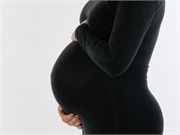Stress, anxiety, depression more prevalent among women carrying fetuses with congenital heart disease
WEDNESDAY, Jan. 15, 2020 (HealthDay News) — Psychological distress, including stress, anxiety, and depression, is prevalent among women carrying fetuses with congenital heart disease (CHD), and this distress can affect fetal neurological development, according to a study published online Jan. 13 in JAMA Pediatrics.
Yao Wu, Ph.D., from the Children’s National Health System in Washington, D.C., and colleagues examined the association between maternal psychological distress and infant brain development in a longitudinal case-control study. A total of 48 pregnant women carrying fetuses with CHD and 92 healthy volunteers with low-risk pregnancies were recruited. Data were included for 223 magnetic resonance imaging (MRI) scans from 140 fetuses (74 MRI scans from 48 fetuses with CHDs and 149 MRI scans from 92 healthy fetuses).
The researchers found that 65, 44, and 29 percent of the 48 women carrying fetuses with CHD tested positive for stress, anxiety, and depression, respectively, compared with 27, 26, and 9 percent of the 92 pregnant women carrying healthy fetuses. Depression scores were higher among 17 versus 31 women carrying fetuses with single- versus two-ventricle CHD. Among women with fetal CHD only, maternal stress and anxiety were associated with smaller left hippocampal, right hippocampal, and cerebellar volumes.
“If confirmed, these findings would suggest the need for universal screening for maternal distress, clinical trials of strategies during pregnancy to minimize these maternal complications, and targeted early cognitive-behavioral interventions to optimize neuropsychological outcome in offspring,” the authors write.
Copyright © 2020 HealthDay. All rights reserved.








